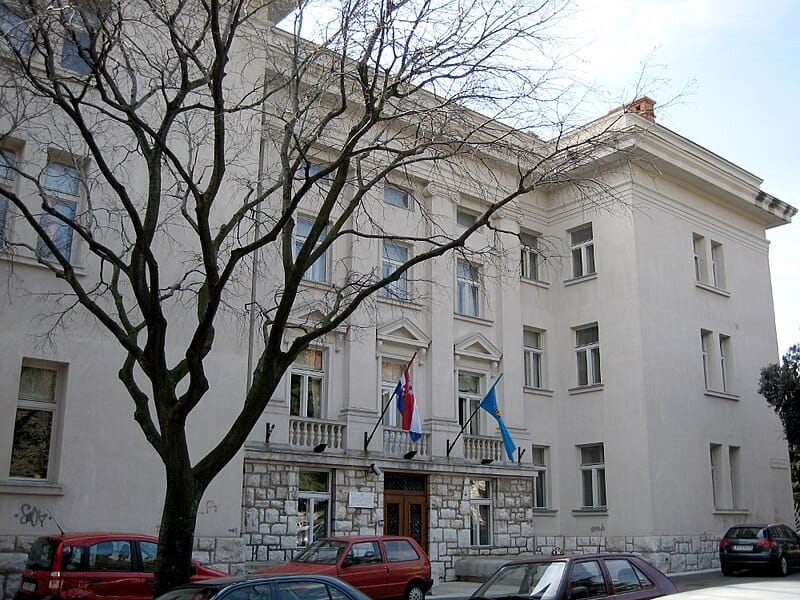- OPUS' Newsletter
- Posts
- OPUS Newsletter (10)
OPUS Newsletter (10)
10th Edition
Welcome to the 10th edition of the OPUS Newsletter.
Find out the latest news about OPUS activities and blogs

2025 OPUS Consultation Survey
In early 2025, we will be launching the OPUS Consultation Survey on Open Science and the OPUS framework for indicators and interventions.
This survey is aimed at researchers, as well as research-performing and research-funding organisations, to gather feedback on our draft framework of indicators and associated interventions. The objective is to reform research assessment systems to better incentivise the practice of open science.
Your input will be instrumental in shaping our final project outcomes. We also hope you will assist us in sharing the survey widely across your networks. Further details will be announced closer to the launch in 2025, and we look forward to hearing your valuable insights!
Recent OPUS Activities
In recent months, the OPUS project has been at the forefront of advancing Open Science practices and transforming research assessment across Europe. From implementing tailored action plans through the Researcher Assessment Framework (RAF) to conducting Mutual Learning exercises that foster collaboration and innovation, OPUS is driving impactful change. These efforts were further highlighted at the "Rethinking Research Assessment" conference, where policymakers, researchers, and organisations explored actionable reforms to prioritise transparency, societal impact, and inclusivity in research evaluation. Together, these initiatives are paving the way for a more open, equitable, and impactful research ecosystem.
↓↓ To read more about these initiatives, simply scroll down. ↓↓
Transforming Research with Tailored Action Plans for Open Science

The OPUS project is reshaping European research culture by integrating Open Science (OS) into researcher assessment through the innovative Researcher Assessment Framework (RAF). Participating institutions are implementing customised action plans, targeting priorities such as open-access publishing, FAIR data, and training. These tailored strategies foster collaboration, transparency, and inclusivity, setting the stage for transformative research practices across Europe.
Insights from OPUS Mutual Learning Exercises and the Researcher Assessment Framework

The OPUS project’s Mutual Learning exercises foster collaboration and innovation among research-performing and funding organisations. Over nine months, pilot organisations tested the Researcher Assessment Framework, a comprehensive tool that embeds Open Science (OS) into research practices. By aligning policies, resources, and training, these tailored interventions promote transparency, inclusivity, and impactful research. Lessons learned highlight the importance of institutional alignment, tailored strategies, and peer collaboration in driving meaningful change.
Rethinking Research Assessment: A Collaborative Step Towards Innovation

On 14 November 2024, the Rethinking Research Assessment conference, hosted by UEFISCDI in partnership with the OPUS project, Science Europe, CoARA, and UNESCO, brought together policymakers, researchers, and organisations to tackle the pressing need for reform in research evaluation systems. Focusing on quality, transparency, and societal impact as alternatives to traditional metrics, the event delved into policies, researcher perspectives, and practical case studies. It represented a pivotal step in aligning research assessment practices with modern values, paving the way for actionable solutions that promote inclusivity and meaningful impact.

Latest Updates and Event Announcements
This month brings exciting opportunities and developments in the Open Science community!
The University of Rijeka has launched the OSCAR project, a Horizon Europe-funded initiative advancing research assessment reform across European universities. Meanwhile, the YERUN Open Science Awards 2024 are now open, inviting innovators within the YERUN network to showcase their groundbreaking contributions to Open Science. Additionally, the DIAMAS Conversation Series continues with its third event, focusing on how libraries can enhance Open Access publishing using the DIAMAS Toolsuite and Guidelines.
Scroll down to learn more about these transformative initiatives and events!
OSCAR Project: Advancing Open Science and Research Assessment Reform

The University of Rijeka proudly launches the OSCAR project, funded by Horizon Europe's CoARA Boost call. In partnership with the University of Cyprus and the European Office of Cyprus, OSCAR aims to integrate Open Science principles into research evaluations, promote institutional reform, and foster stakeholder engagement. Building on the OPUS project's success, OSCAR focuses on innovative qualitative frameworks and responsible use of metrics, driving transformative research policies across European universities.
YERUN Open Science Awards 2024 Now Open!

Are you driving innovation in Open Science at your YERUN institution? Here’s your chance to shine! The YERUN Open Science Awards 2024 have officially launched, offering a unique platform to celebrate and reward groundbreaking Open Science initiatives across the YERUN network.
DIAMAS Conversation Series on Open Access (OA) Publishing

Join for the third event in the DIAMAS Conversation Series and explore how libraries can enhance their Open Access (OA) publishing efforts using the DIAMAS Toolsuite and Guidelines.
Stay up-to-date with daily Open Science news posted on our website
Thank you for checking out our latest newsletter!
Make sure to stay in touch with us via
Open and Universal Science Project |
The OPUS project is an EU-funded project implemented by an eighteen-organisations consortium led by The Oceanic Platform of the Canary Islands (PLOCAN). The project commenced on 1 September 2022 with an implementation period of 36 months.
OPUS helps reform the assessment of research towards a system that incentivises and rewards researchers to take up Open Science (OS) practices of providing open access to research outputs, early and open sharing of research, participation in open peer-review, measures to ensure reproducibility of results, and involving all stakeholders in co-creation.
OS Ecosystem State-of-the-Art
OPUS conducted a comprehensive state-of-the-art on existing literature and initiatives for Open Science to reform research(er) assessment and incentivise and reward Open Science practices. It includes a stakeholder engagement plan
OS Interventions
OPUS developed indicators and interventions for Research Performing Organisations (RPOs) and Research Funding Organisations (RFOs) to implement a reformed research(er) assessment system that incentivises and rewards Open Science.
Pilots to Implement and Monitor Open Science
OPUS sets up, implements, and monitors the pilots’ open science practices in 3 RPOs and 2 RFOs, and conducts mutual learning exercises based on implementing the action plans.
Policy Brief
OPUS will develop and disseminate policy briefs on Open Science and a revised OS-CAM to assess research careers. The policy briefs will summarise the key findings of the project and link to the wider global context of Open Science.

HORIZON-WIDERA-2021-ERA-01 The OPUS project is financed by European Union through the GRANT AGREEMENT concluded with the European Research Executive Agency (REA), under the powers delegated by the European Commission. Project number: 101058471 |
Views and opinions expressed are however those of the author(s) only and do not necessarily reflect those of the European Union or the European Research Executive Agency (REA). Neither the European Union nor the granting authority can be held responsible for them.